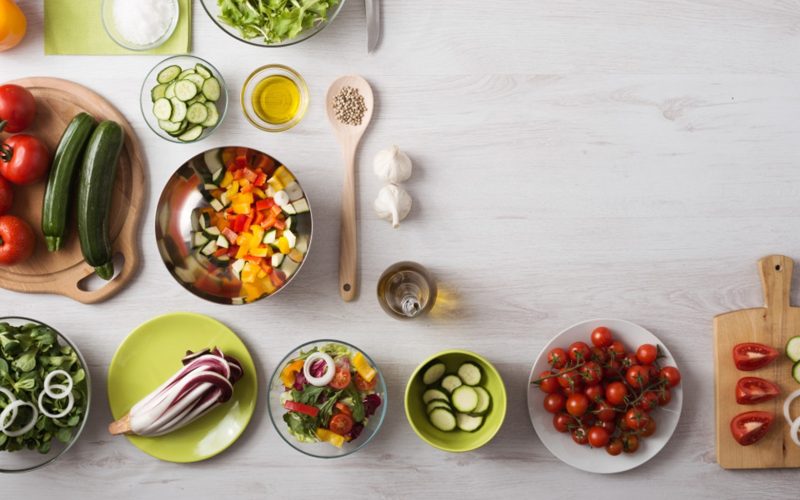Creating a healthy relationship with food is essential for overall well-being. It involves understanding the emotional, psychological, and physical aspects of eating. This article will explore practical strategies to cultivate a healthy relationship with food, allowing you to enjoy meals without guilt and foster a positive mindset toward nourishment.
1. Understand Your Eating Habits
The first step in building a healthy relationship with food is to understand your eating habits. Take note of when, why, and what you eat. Are you eating out of hunger, boredom, stress, or habit? Keeping a food diary can help you identify patterns and triggers. By recognizing these behaviors, you can begin to make conscious choices about your eating habits.
2. Practice Mindful Eating
Mindful eating is a powerful practice that promotes a healthy relationship with food. This technique involves paying full attention to the experience of eating. Slow down, savor each bite, and listen to your body’s hunger and fullness cues. By focusing on your meal, you’ll be more aware of how different foods make you feel, enabling you to make healthier choices
3. Avoid Labeling Foods as “Good” or “Bad”
Labeling foods as “good” or “bad” can create a negative mindset around eating. Instead, adopt a balanced approach to food. All foods can fit into a healthy diet when consumed in moderation. By reframing your thoughts, you can eliminate guilt associated with certain foods and foster a more positive relationship with what you eat.
4. Nourish Your Body with Variety
A healthy relationship with food is rooted in nourishment. Aim to incorporate a variety of foods into your diet, including fruits, vegetables, whole grains, proteins, and healthy fats. This not only provides essential nutrients but also keeps meals interesting and enjoyable. Experimenting with new recipes and cuisines can help you discover new favorites and deepen your connection to food.

5. Listen to Your Body
Listening to your body is crucial for developing a healthy relationship with food. Tune in to your physical hunger and fullness cues. Eat when you’re hungry, and stop when you’re satisfied. This practice encourages intuitive eating, helping you recognize your body’s needs without external rules or restrictions. By trusting your body, you can create a more harmonious connection with food
6. Address Emotional Eating
Many people struggle with emotional eating, turning to food for comfort during stressful times. Acknowledging this behavior is essential for cultivating a healthy relationship with food. Instead of using food as a coping mechanism, explore healthier alternatives for managing stress, such as exercise, meditation, or talking to a friend. Finding new outlets for your emotions can help you break the cycle of emotional eating.
7. Create a Positive Eating Environment
Your eating environment plays a significant role in your relationship with food. Aim to create a positive and inviting atmosphere during meals. This can include setting the table, dimming the lights, or enjoying meals with family and friends. A pleasant eating environment encourages mindfulness and appreciation for the food, enhancing your overall experience.
8. Educate Yourself About Nutrition
Understanding nutrition can empower you to make informed choices, promoting a healthy relationship with food. Learn about the benefits of different food groups and how they contribute to your overall health. However, be cautious of overly restrictive diets or trends. Aim for balanced knowledge that focuses on nourishment rather than deprivation
9. Set Realistic Goals
Setting realistic goals is key to maintaining a healthy relationship with food. Rather than aiming for perfection, focus on making gradual changes that are sustainable over time. Whether it’s trying to cook at home more often or incorporating more fruits and vegetables into your meals, small, achievable goals can lead to significant improvements without overwhelming you.

10. Seek Support When Needed
Creating a healthy relationship with food can be challenging, especially if you have a complicated history with eating. Seeking support from professionals, such as registered dietitians or therapists, can provide valuable guidance. They can help you navigate your feelings about food and develop strategies for a healthier mindset. Support from friends and family can also reinforce positive changes in your relationship with food.
Conclusion
Building a healthy relationship with food is a journey that requires patience and self-compassion. By understanding your eating habits, practicing mindful eating, and listening to your body, you can create a more positive connection with food. Remember to avoid labeling foods, nourish your body with variety, and seek support when needed. With time and effort, you can foster a healthy relationship with food that enhances your overall well-being and enjoyment of life.










